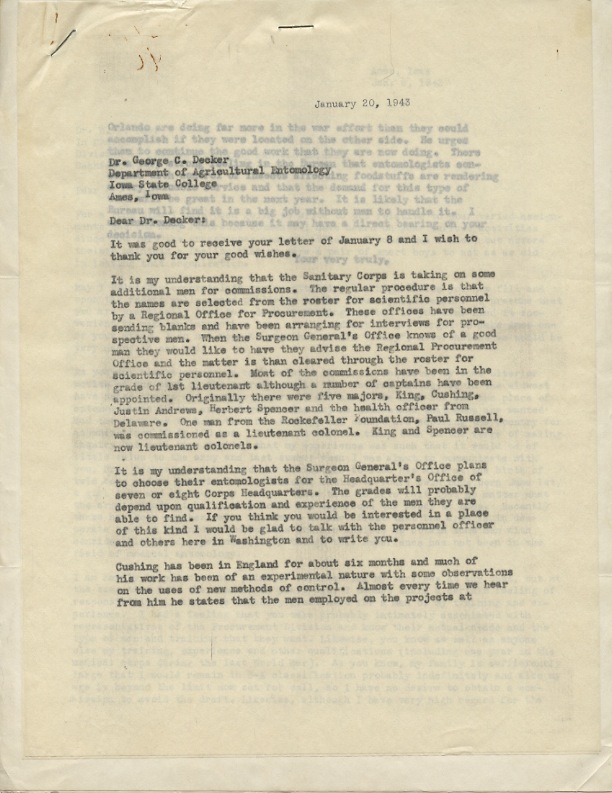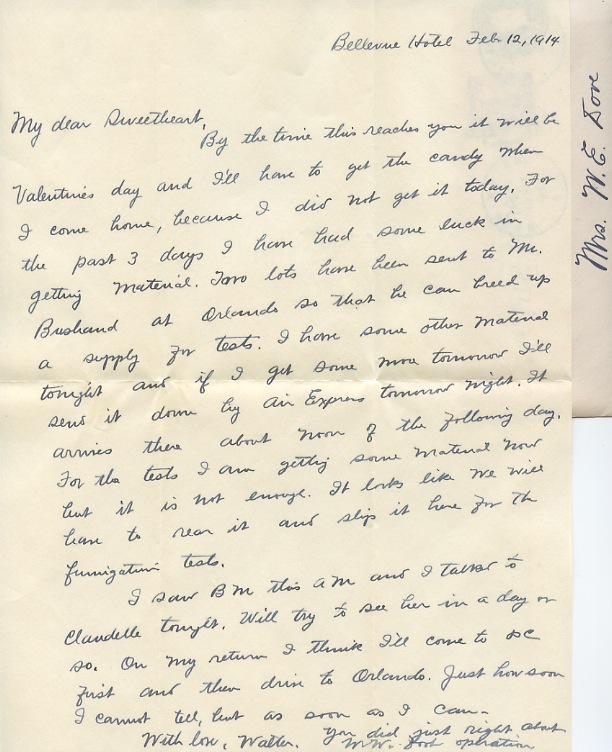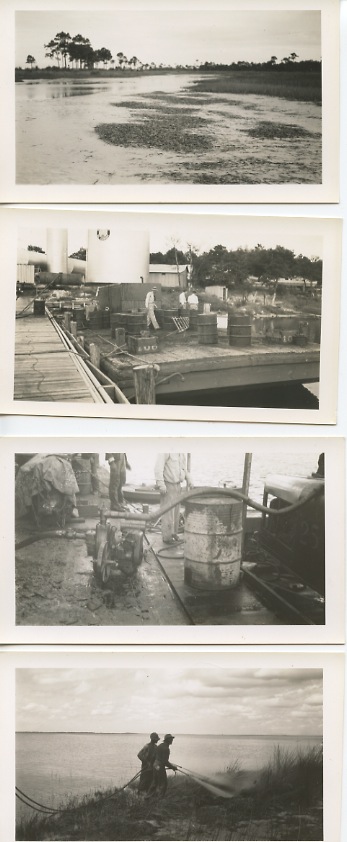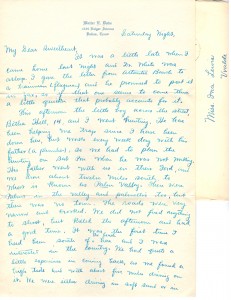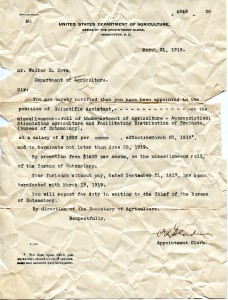At home, Monday nite,
Aug. 18, 1941
My dear Sweetheart & Boys,
Your letter was a real good one and I was more than pleased that our boys are on their best behavior. I hope that they will keep up the standard they have already set, and that all of them including Tommy will not give any trouble to Mother and Daddy Lewis.
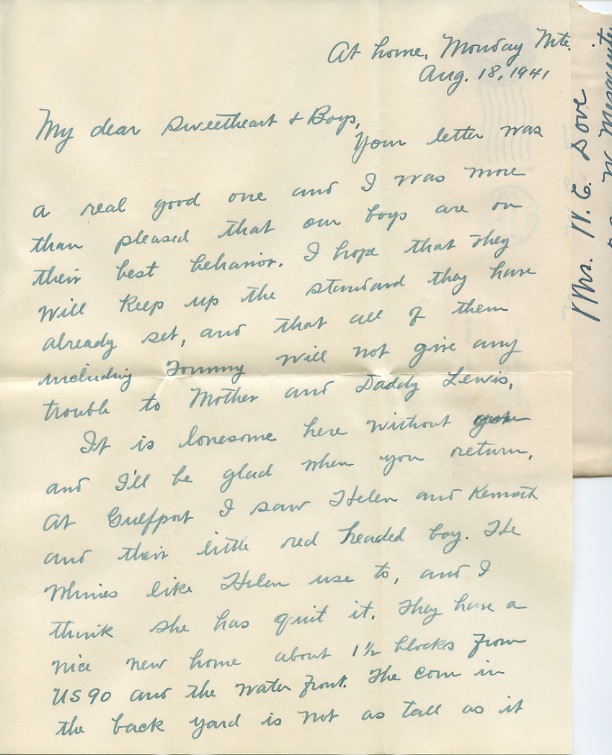
August 18, 1941
It is lonesome here without you and I’ll be glad when you return. At Gulfport I saw Helen and Kenneth and their little red headed boy. He whines like Helen used to, and I think she has quit it. They have a nice new home about 1 1/2 blocks from US 90 and the water front. The corn in the back yard is not as tall as it was in Minneapolis, but there is a larger lawn of fast growing grass to mow. Helen put a little package in my coat pocket for you, Ina, and at home I find that it is some sort of Verbena soap. I opened it to see if it was fruit cake which might spoil before you come home. You might care to send her a card. I had to promise that we would stop there on the return trip. I did not leave Gulfport until about 8:30 PM, after Kenneth and I had dinner down town, so that I did not get home until about 3:30 Tuesday morning. I had a good visit with the White FB men and learned something. Dr. Dickison was expecting his family soon. R.A. was in a very good mood and will be there two or three weeks.
As yet there has been no word on the control program. I am expecting it at any time, but am inclined to believe that the papers showed up on the desks of some disinterested parties. Mr. Wylie of the USPHS has been here a few days going over the problem. Apparently with a view of making recommendations for a PHS project by WPA. A high tide on Santa Rosa Sound gave a good degree of natural control, and it seems that there has been quite a delay in the season this year.
Saturday PM I washed 2 lots of soiled clothes and dried them. Sunday I ironed them, on the ironer, including 10 shirts and 3 pairs of trousers. Sunday night I drove to the Old Dutch Tavern for a steak. It was fair and I met Mr. Bergdorf who had a collection of heads and skins from Alaska. I found that he had spent about the same amount of time up there as you and I. He went north from Fairbanks to Point Barrow. I drove back by Panama City Beach and listened to Mr. Weir toot his trumpet. He isn’t as good as Walter White thinks he is.
That quart of milk each day makes me think that I am cheating some calf out of something. It is more than I need.
Have a good time and be good.
With love
Walter.
Walter is starting up a program to control dog flies in the Panama City coastal area. The flies breed along the shoreline, which is why an unusually high tide killed off a batch of them. Apparently there are some administrative snags holding up the program.


